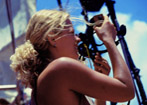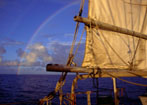|
Vatu-Ira
Channel (S
17° 20.8’ E 178° 31.4’)
15th - 22nd June 2005
We had heard many glowing reports of the reefs on the seamounts
in the Vatu Ira Channel. The upwellings here have possibly contributed
greatly to the escape of its reefs from the bleaching events that
have affected many other parts of Fiji in recent years.
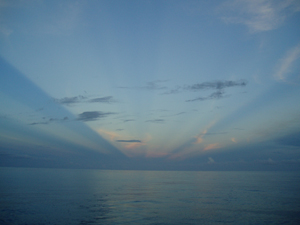
We arrived at Mount Mutiny on a flat calm Sunday morning, luckilysince
there is no anchorage possible in these deep waters. The diving
was incredible – corals were elbowing each other out of the
way to claim a patch on these mounts that rise from way down blue
to just below the surface. Turtles, sharks, great barracuda, jacks
– although perhaps not as many fish as there could have been?
We moved across the bay to explore E6, a neighbouring mount, but
found it to be not as idyllic as Mount Mutiny.
Namena
22nd June - 14th July
We returned to Namena, excited to begin our studies and to host
the team from Wildlife Conservation Society. However, our plans
were slightly taken out of our hands by the Fijian phenomenon of
the ‘bugiwaloo’ – the eight day winds that can
appear out of nowhere and blow consistently for eight days and eight
nights. Our anchor held beautifully through a constant twenty five
knot wind for more than a week, with prolonged gusts up to thirty
five knots. But we could not dive. Our anchorage and the entire
reef system gave no protection from the swells that were rolling
in from the south west.
Good weather returned with the arrival of Alex and Didi from Wildlife
Conservation Society, James Atherton, a GIS specialist from Western
Samoa, Matt Dunlap, a coral biologist from the University of Hawaii
and Matt who has been running the Greenforce volunteer programme
on Vanua Levu,. We worked hard to gather data underwater on the
reef system at Namena and to track the reef outline using a GPS
so our data can be correlated with a recent satellite image of the
reef. We spent a precious few days together working through the
task in hand and reveling in the incredible dive sites around Namena,
including several sightings of a school of hammerhead sharks at
the North Save-a-Tack Pass.
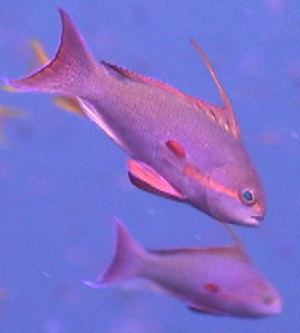
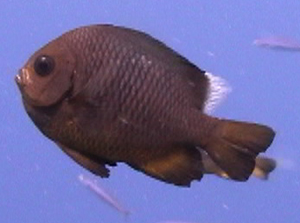
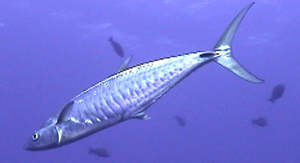
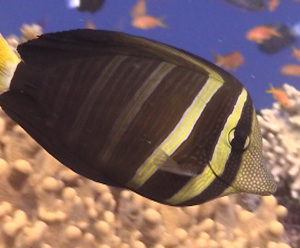
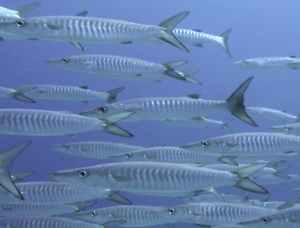
Having lost time to the bad weather, we were up against a departure
deadline to complete our studies. But all went very smoothly and
we were able to weigh anchor on time, with a tinge of sadness at
leaving behind such a majestic reef system.
Click here for the full results of our study at
Namena.
Voyage
to Nadi
14th - 18th July
A short but vibrant journey - we dived Thakau Momo, a submerged
reef in the Koro Sea. Large swells were breaking on the forereef
so we explored the back reef and found it to be a stark contrast
to the explosion of life at Namena. Most former corals have turned
to skeletons, with coralline algae overgrowing many. But an encounter
with an octopus lifted spirits.
A pod of pan-tropical spotted dolphins rode our bow, including
a very young dolphin with its mother.
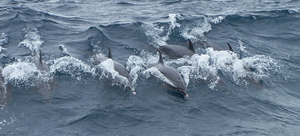
pan-tropical spotted dolphins beside the Heraclitus
The following day, two small pods of sperm whales gathered close
to us, a mother and baby breaching several times, then two more
surfacing just metres off our portside and holding their position
for almost a minute. We were just twenty miles south east of Suva.
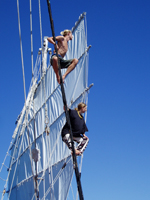
lookouts
for the sperm whales
Fiji enthralls us – with its rainbowed reefs, its animated
seas, its demanding weather systems and its wide ranging cultures.
|


